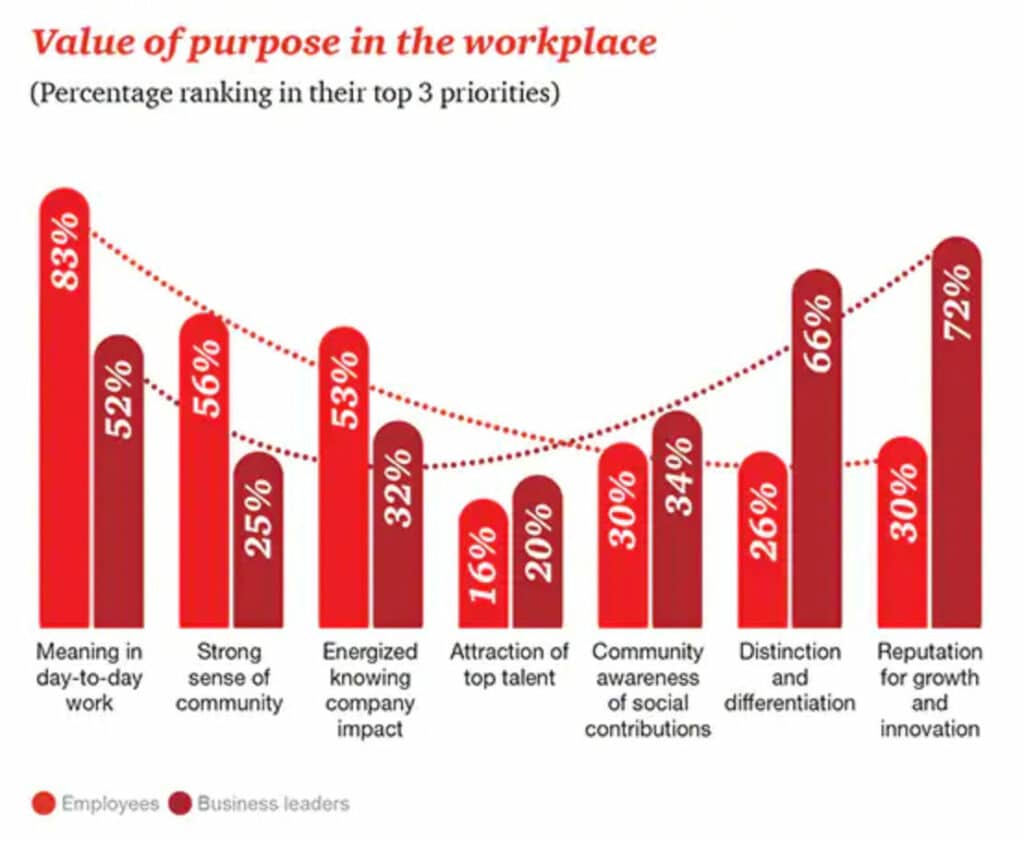Leaders who are engaged in the further development or transformation of their company will quickly realize that the company purpose is the axis around which the long-term success of their organization revolves. Of course, elements such as a solid product, a strong brand and a good team are important for success – but all these points are directly or indirectly dependent on the company purpose, the PURPOSE.
Purpose is much more than old-fashioned mission statements, which are hidden in the back corners of the company’s website. It is about real, comprehensible content and not about stale platitudes, such as “we stand for 1A quality”, or “our products are the best on the market”.
So how should Purpose be understood? A simple model for a better understanding is the well-known “Golden Circle” by Simon Sinek. This basically states that the “Why” should be at the center of all our (organizational) activity, and issues such as a company’s unique selling points (“How”), or the actual products and services (“What”) take a lower priority. Or to paraphrase Nietzsche, “He who has a why to live for endures almost any how” – while this sounds overly dramatic, it is a reality for many companies struggling with their strategic direction in this age of COVID. So let’s take a look at exactly why Purpose is so critical to business success:
-
Purpose as the core of the organization
The purpose of a company can never be solely “to make money”. Of course, economic success is of fundamental importance for the survival of organizations, but that success is always the result of good work. The core of the company is the purpose – the reason why the company was originally founded. It represents its raison d’être, embodies those aspects that a company is particularly good at and that its employees like to do, focuses on solving customers’ problems and is the reason why top talents choose the company.
-
The Purpose as the North Star for Leadership
If the purpose is clear, a stringent approach to leadership is easy to achieve. All strategic issues can be repeatedly aligned with it, employees can be clearly briefed, and the entire organization can present a unified front to third parties.
-
Purpose as an anchor for employee
‘Purpose’ is cited by over 80% of employees as a significant element in their satisfaction and sense of belonging at work (see chart). It gives energy and a reason to enjoy going to work every day, which subsequently leads to increased employee loyalty and reduced turnover costs.

Source: https://www.pwc.com/us/en/purpose-workplace-study.html -
The Purpose as actual added value for customers
Successful companies do not rely on ego messages. The purpose and the customer benefit are at the center of their actions. The times when topics like ‘social responsibility’, ‘sustainability’, or ‘customer experience’ were dismissed as esoteric are long gone, and good riddance. Customers love these topics and social media offers the ideal communication platform for spreading the message.
-
The purpose as the emotional center of the brand
Emotions are the drivers that turn a brand into a “love brand”. And it is precisely these emotions that are inspired by a meaningful purpose, not by sophisticated product features. Purpose brands have an irresistible appeal. They offer social, emotional or ethical added value and turn ordinary consumers into enthusiastic brand ambassadors.
In summary, the tremendous importance of corporate purpose to an organization cannot be overemphasized. If this is not clear in your company, you will do well to address the issue as soon as possible!
Do you know the purpose of your company? How does it affect your performance and motivation?
Fritz Krassnitzer
Email: fritz.krassnitzer@leaders21.com
Link to profilepage

